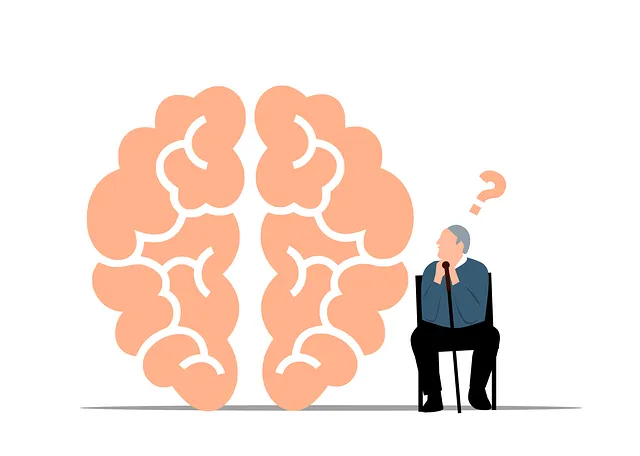Lone Tree Kaiser Permanente Mental Health Program employs a multi-faceted evaluation strategy, combining standardized questionnaires, clinical interviews, participant surveys, and focus groups to assess program effectiveness. This approach tracks improvements in anxiety, depression, stress management, and psychological well-being, while also gathering qualitative insights. Long-term sustainability is measured through follow-up assessments, ensuring learned skills are applied in everyday life. Data analysis of participation rates, engagement trends, and outcome measures guides continuous improvement, enhancing mental health outcomes for all participants at Lone Tree Kaiser Permanente.
The evaluation of mental wellness programs is paramount to ensuring their effectiveness. This article explores assessment methods used at the Lone Tree Kaiser Permanente Mental Health Program, focusing on three key components: Assessing impact through various measurement tools, leveraging participant feedback and satisfaction surveys, and conducting in-depth data analysis for continuous improvement. By employing these strategies, the program aims to optimize its services, fostering better mental health outcomes for its community.
- Assessing the Impact: Methods for Measuring Success at Lone Tree Kaiser Permanente Mental Health Program
- Participant Feedback and Satisfaction Surveys: A Vital Tool in Evaluation
- Data Analysis and Interpretation: Unlocking Insights for Continuous Improvement
Assessing the Impact: Methods for Measuring Success at Lone Tree Kaiser Permanente Mental Health Program

Evaluating the impact of mental wellness programs is a multifaceted process, and at Lone Tree Kaiser Permanente Mental Health Program, we employ various methods to measure success. One key approach involves assessing changes in participants’ mental health status through standardized questionnaires and clinical interviews before and after the program. This helps track improvements in symptoms related to anxiety, depression, stress management, and overall psychological well-being.
Additionally, we gather feedback from both participants and healthcare providers to gain insights into the program’s effectiveness. This includes surveys that assess satisfaction levels, perceived benefits, and areas for improvement. Our approach also integrates qualitative data through focus groups and individual interviews, providing a deeper understanding of participants’ experiences and fostering continuous improvement in our services. Moreover, we measure the long-term sustainability of positive changes by conducting follow-up assessments to ensure that the skills learned translate into everyday life, promoting positive thinking and enhanced resilience against stressors.
Participant Feedback and Satisfaction Surveys: A Vital Tool in Evaluation

Participant Feedback and Satisfaction Surveys are invaluable tools for evaluating mental wellness programs at Lone Tree Kaiser Permanente. These surveys provide direct insights into patients’ experiences, allowing healthcare providers to gauge the effectiveness of services offered. By collecting feedback, facilities can understand how well their programs cater to individual needs, address specific issues like stress management or emotional healing processes, and even measure progress in reducing the stigma associated with mental illness.
The data gathered from these surveys offers a comprehensive view of patient satisfaction, which is crucial for continuous improvement. It helps identify areas that need refinement, ensures services align with patients’ expectations, and ultimately contributes to enhancing overall mental health outcomes. This method not only benefits individual participants but also informs the development of more tailored and successful programs at Lone Tree Kaiser Permanente, catering to a diverse range of mental illness concerns.
Data Analysis and Interpretation: Unlocking Insights for Continuous Improvement

Evaluating a mental wellness program involves meticulous data analysis and interpretation, which serves as a powerful tool for continuous improvement at Lone Tree Kaiser Permanente’s mental health initiatives. By examining participation rates, engagement trends, and outcome measures, healthcare professionals gain valuable insights into the effectiveness of various interventions. This process includes qualitative and quantitative methods to analyze feedback from participants, assess changes in symptoms, and track progress over time. For instance, identifying patterns in client satisfaction ratings or measuring improvements in Self-Care Routine Development for Better Mental Health can highlight areas of success and inform adjustments.
Furthermore, data analysis enables the integration of Stress Reduction Methods and Social Skills Training outcomes into program enhancements. By understanding which techniques resonate most with individuals, healthcare providers can tailor interventions to better meet their needs. This iterative approach ensures that Lone Tree Kaiser Permanente’s mental wellness programs remain dynamic and responsive to the evolving well-being of its clients.
Evaluating mental wellness programs is pivotal to ensure their effectiveness, and at Lone Tree Kaiser Permanente Mental Health Program, a multifaceted approach has proven successful. Assessing impact through various methods, incorporating participant feedback, and meticulous data analysis enable continuous improvement tailored to the unique needs of the community. By adopting these strategies, the program at Lone Tree Kaiser Permanente sets a benchmark for enhancing mental health services, offering hope and support to those in need.





